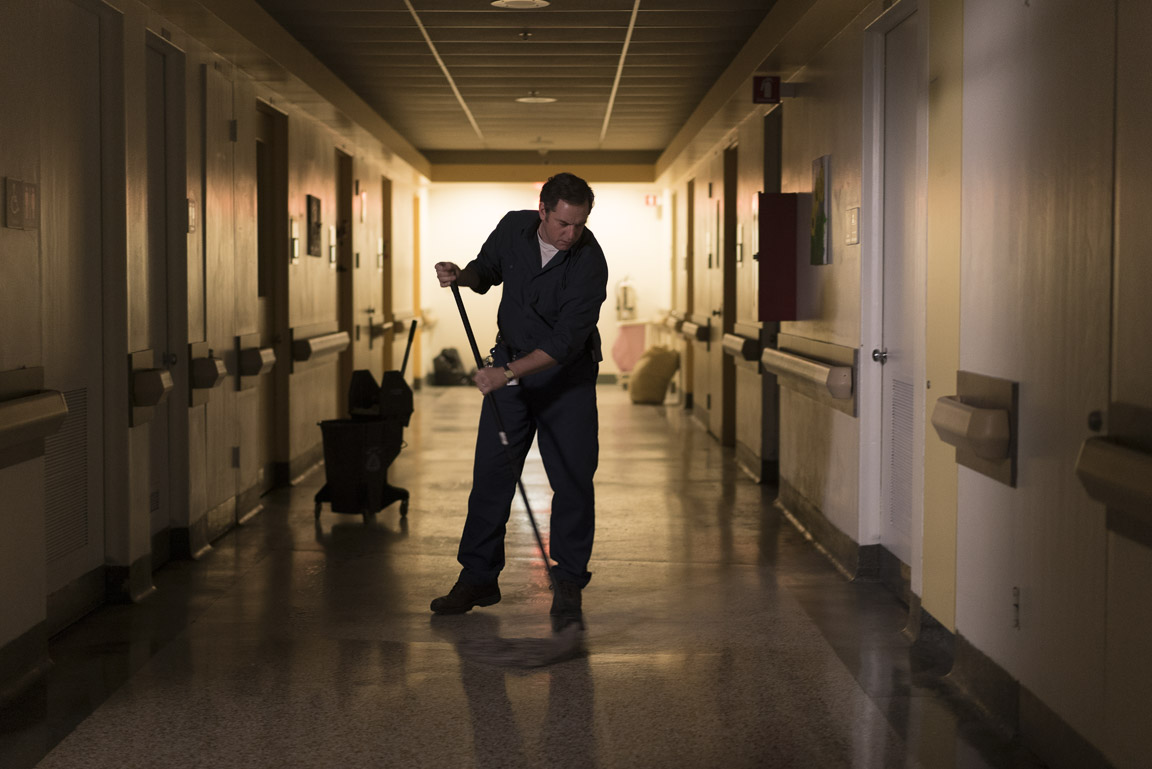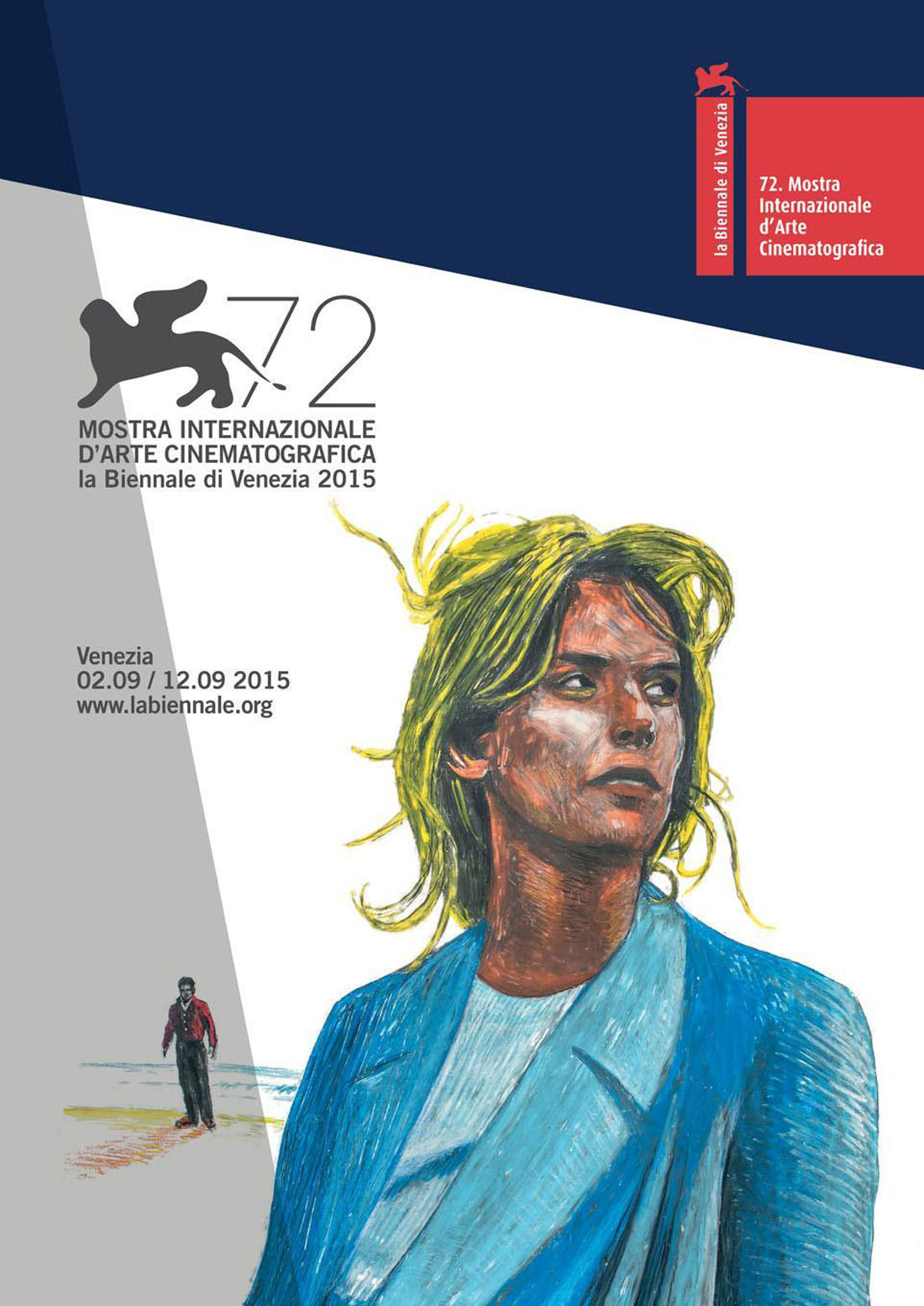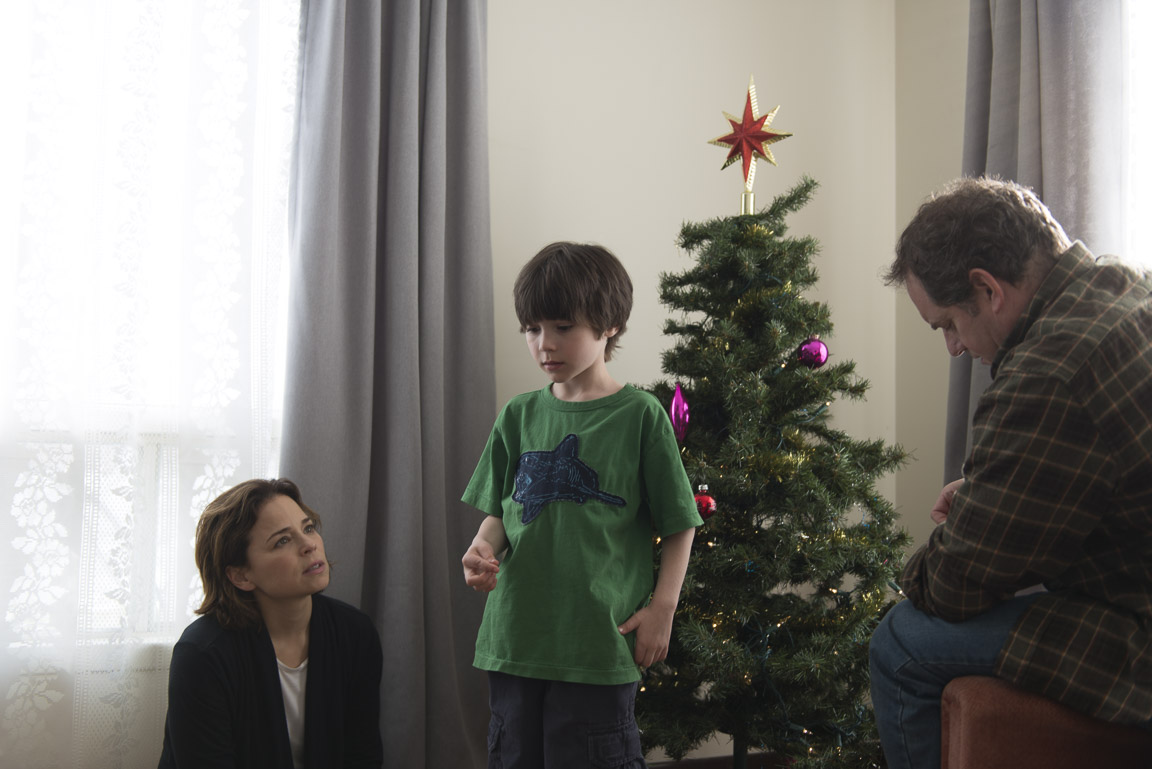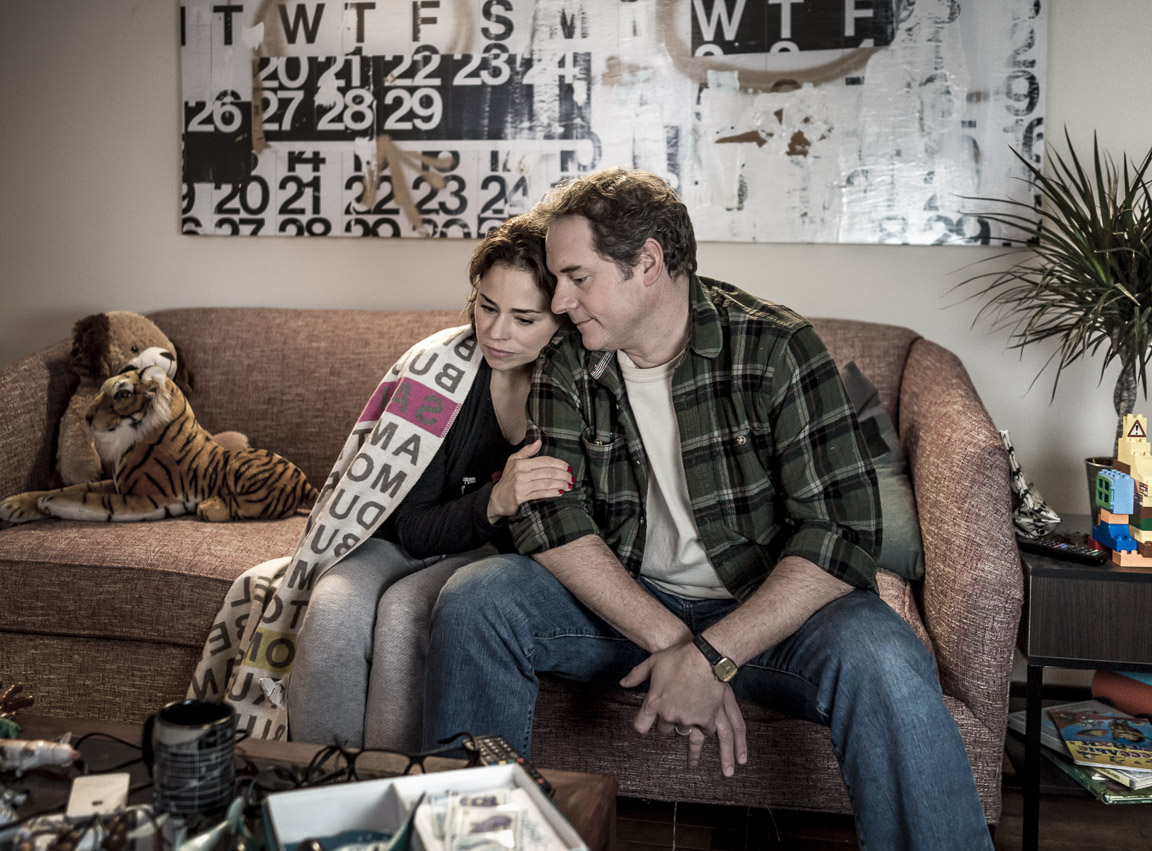Early Winter

Michael Rowe australiano è sceneggiatore e regista di Early Winter. Il film è stato presentato alle Giornate degli autori. E’ il suo terzo lungometraggio, dopo aver vinto la Camera d’or a Cannes nel 2010 con Ano Bisesto e presentato Manto Aquifero al festival di Roma nel 2013.
La traduzione dell’intervista in italiano è QUI: SCRITTORI A VENEZIA. Michael Rowe
Hi Michael, I work for Italian Writer’s Guild and I wanna talk with you especially about screenwriting. I don’t know the situation in Mexico or Australia, but unfortunately in Italy writers are not very important…
Same in every country. That’s why I direct. I have been a scriptwriter for ten years, but nobody would direct my scripts, so I said I’m gonna direct by myself.
First thing I ask you a presentation of the movie, a pitch of the film.
Oh… I hate pitching, I don’t do it, it’s orrible, it’s one of the most damaging things to do…
Well it’s a film about a marriage crysis, that should end by the end of the film, but it doesn’t.
I heard you said it’s also a film about loneliness. A theme you also had explored in your previous movies. So why are you interested in loneliness?
I think it’s part of the human condition anyway, but particularly the modern world has lead us to a state of loneliness that isn’t actually necessary. What stops from being lonely in the real world is family and friends, human connections are the answer. And when we don’t have human connections we turn in ourselves, we become lonely and disturbed in someway. And that’s a paradoxical problem with modern technologies, that gives you instant access to everybody in the world, in any country, but leaves you more isolated than ever, because you’re not having real human contact with people around you. And that’s the only sort of contact that I think is emotionally nurrishing.
So the protagonist of the movie is a lonely man, who have an apparently nice family…
I think a lot of married couple in the world have experienced loneliness, even if they are married. I think that’s easy let yourself sleeping into the loneliness. The main character David is struggling to keep some kind of link to his family, to his wife, but his work shifts doesn’t help in term of time with the kids and his relationship with his wife is difficult because her resentment leads her to be aggressive. And she has loneliness issue too, she comes from Russia and has been living in Canada for 15 years and in a certain way that has affected her.
How have you been working from the written story to the shooting, did you have all perfectly written or you made changes on the set?
I change the script, once the second draft is written, it changes little until the shoot, what’s edited now is very close to the script. But I do work extensively with the actors to change details. About motivation, I find as a scriptwriter that people do the same things for different reasons, and that is rewriting the dialogue. So I worked with Paul and Suzanne about this, we worked together on the characters and discovered things they would and things they wouldn’t do. In this film more than any other ever there was improvisation, which I don’t usually like or alloud. But there are two scenes where Suzanne improvised. I usually shot with no time, like 17 days, this time we had more time and great actors, there was time to play and to discover things. I don’t like rehearsal, because I like the energy of the first performance.
I noticed that in the movie there’s not a lot told by dialogue, but especially in key moments, silences are more important than dialogue.
I think that the nature of a screenplay is something where all informations should be carried by images. Dialogue is necessary, because people speak in the real world, it would be weird if they didn’t, but I try to convey most of the informations by images. It’s hard to me as a screenwriter because I’m not particularly born for images, I come from theater and poetry that are more language oriented, but I have to try because the real language of cinema is images.
So how do you get to screenwriting?
MR: I was a strange child, I was obsessive and I wanted to change the face of poetry in english, I wanted to change the way poetry is written in english. I started writing poetry when I was 6 and when I was 16 I decided that I was gonna change and until 22 years old I wrote form 7 to 30 poem every day. And I read the entire history of english poetry from middle age to the 20th century. And everyone I read I thought: I can do that, I could write that. And I reach TS Eliot in 1923 and I thought: I can’t do this. So I quit poetry. I stopped writing poetry and I was like… you know I had always imagined myself as this great tragic poet, and I thought what I’m gonna do with my life? I have to make a living, pay bills and do this orrible things. So maybe I had a certain talent with writing I thought I could do something else, like theater and make a living out of it. So I went to a competion with two plays, and people working in a theater crew call me and said “We saw your plays, we want to work with you”. And it turned out that the project was for tv and to me already theater was prostitution and tv was out of the question. But I loved the people who called me and I didn’t know how to say no. So I spent all my money to buy a ticket for the farest place I can go, and it was Mexico. So I said I can’t do because I’m leaving for Mexico. And there I stopped writing for 3 years, because I don’t believe in writing in a language that’s not the language of the country where you are, I think is disonest. So I stopped writing for 3 years, which almost killed me. And when I get back to writing, in spanish finally, my grammar wasn’t very good. I went to a screenwriting course, because screenplay is a present tense active, so you don’t have to conjugate past and future, and I had a good hear for dialogue, so I think ok I can do that. Then after ten years of writing screenplays and no one wanted to film its, I quit my job and spent my savings to buy a camera, I read a couple of books on how to direct movies, I wrote a script with two people in a room and shot my first short film. The thing is that nobody would direct my script, so I had to, I didn’t want to direct, I hated it, I thought it was a boring technical process, you have to yell at people, know a lot about lenses and cameras, and I thought it was orrible but I had to learn. And after while, once I got into the process, I discovered you don’t have to know a lot about technics. The important thing is what I want in the script to be in the screen, and so it’s easy, I love directing like this, is much better than writing. Because writing is much more solitude, you are on your own with your worst demons and it’s orrible, no one can help you, while on the set everybody is there to help you! All the actors and photographers are very experienced and want to help you. Is much harder to be a writer, on set they bring you coffee all the time, while when you’re writing you have to make your own coffee.
Do you thing about the audience when you’re writing?
No never. I believe your only commitment, your only responsability as a writer is to characters. And you should never listen to evil part of yourself, as doubts. On my second film I had a scene with a little young girl with lizards and beetles, and I thought “I have to direct this… How I’m gonna shot this?”

And I said shut up! You are not there yet. I don’t know about everyone else, but my voice as a writer is very small and very fragile and if I start letting other things creep in, it will get trouble, it will get damaged. So I have to be very careful about not thinking about anything except, not even me, the characters. Sometimes you’re writing something and you think “Oh my god, what they’re gonna say when they see this”, you can’t think that, that’s your character, that’s it, you don’t own responsability.
How do you choose the characters?
They choose me. I think when I’m writing properly I’m channeling, I’m not really writing. There’s a part of my head that gets really hot, I sweat a lot, I use to write in underpants. I remember when I was writing Leap Year, my first film, it was 3 in the morning and I was writing and suddenly I went: “OH!” my first thought was I’m gonna wake my wife, then I realized I said that out loud, why did I do that? And I did because in the dialogue somebody said something that I didn’t expect. And I was like: how could you say that? And I asked: wait a minute who is writing this? Cause it wasn’t me! And I realized when you are really writing properly you are not in control at all. The characters are doing what they want and you’re just reading.
So you come from Australia, than you moved to Mexico and Early Winter has been shot in Canada. How do you experience this travelling situation?
What I’m trying to get to is that… people are universal, doesn’t matter where you are from. You can be from Russia and living in Canada, be from Australia living in Mexico, or moved from Mexico city and live in a small town. My films are very deeply linked to places, strangely enough, because most of the protagonists are from other places. They are trapped in somewhere they don’t belong. That’s a bit creepy actually. There’s a profound sense of displacement.
The director of the Festival Barbera said there are too many low budget films, that low budget leads to bad quality. What do you think about that?
I don’t agree, I shot my first film with nothing, something like 15.000 dollars. I think you need to be intelligent enough to write for a budget, for the budget you can have. If you know you don’t have much money you need to write a script for two people in a room, and you have to be good enough to make that script deep and interesting and full of tension. And it can be done, but you need to write, you need to know what you are doing and you need to take it seriously. I think it’s an interesting limit for me, a limit can free you up sometimes. If you know you can’t go anywhere, if shut them up in a house, then you really have to write, because you’re getting to revelations of character, hidden secrets and things that bring you deeper into characters. In order to have dramatic movement, if you can’t displace physically, you have to go somewhere, you have to go down, inwards and discover layers of truth. You need to know you don’t have a budget, you can’t write Star Wars for a 100.000 dollars production. And that’s what I found makes bad low budget films. Concept of the film isn’t written for low budget.
Do you think is useful to fight and work to getting more aknowledgment for the role of screenwriter? Normally is the director who is considered the creator of the movie, while writers don’t get a lot of credit both economically or artistically.
Well that comes from Hollywood, when in the twentys the director had too much power, because they where the ones to film and they used to do everything. When Hollywood was becoming an industry producers started asking directors to do a couple of film for year, they couldn’t anymore do one film every two years, so directors said “If you want me to do that, you have to give me a script. So bring me those idiots and you can have Romeo and Juliet in the gangland of whatever…” And they take the script and they filmed it, making adjustment to the script, because you know the director had the power and the name, it was always a film by the director, written by someone… I think for the credit should be the other way around, the hard work creatively is the screenwriting. In my view should be a film by the writer and directed by… And that actually something I wanna do in my next film, I’m gonna have my screenwriting credit first.
Can you tell me something about your next project?
Lot of sex!
That’s a way for showing and not telling, sex is communication without words.
Yes, that’s it… so lot of sex!


Le foto sono messe a disposizione della stampa dal sito http://www.venice-days.com/ che ringraziamo.



